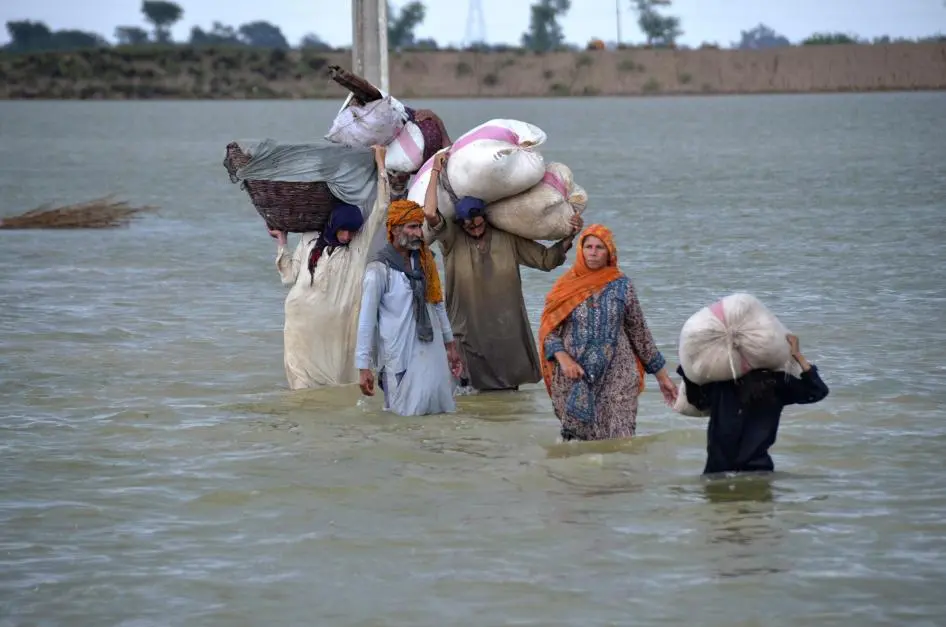Editorial
Pakistan today faces an unprecedented flood emergency. The mighty Sutlej, Ravi, and Chenab rivers have all swelled to dangerous levels, their waters converging at Panjnad before surging downstream into Sindh. This extraordinary inflow is not only wreaking havoc on lives and livelihoods, but also raising a graver question: how much of this precious water will eventually be wasted as it flows unchecked into the Arabian Sea?
The politics of water in Pakistan has always been fraught. At the heart of the debate lies Sindh’s long-standing position: upstream reservoirs and dams threaten its constitutional share of water. Fears persist that storage facilities in Punjab or Khyber Pakhtunkhwa might deprive Sindh of timely flows. While such apprehensions are understandable, and constitutional guarantees must indeed be honored, the reality is that water crises born of natural disasters demand collective, not provincial, solutions.
https://www.youtube.com/@TheRepublicPolicy
Sindh’s apprehensions cannot be dismissed, yet they cannot become an excuse to allow colossal waste. The loss of floodwater affects not just Sindh, but the federation as a whole. Southern Punjab’s Seraiki belt, Balochistan’s arid tracts, and even rural Sindh itself suffer when water is not conserved. Thus, water storage, conservation, and equitable distribution are not provincial favors, but federal obligations.
The question Pakistan faces today is larger than flood management. It is about federal policy, institutional coordination, and the national interest. Can we capture and conserve this water? Can we invest in scientific and economic planning instead of succumbing to provincial prejudice and political expediency? Failure to act decisively will not merely waste water; it will symbolize the collapse of federal responsibility.
https://facebook.com/republicpolicy
Recommendations The federal government must immediately establish an independent National Water Commission, one that is beyond provincial biases, empowered to design strategies for storage, distribution, and conservation.
A pragmatic roadmap for small and medium-sized dams must be drawn up to harness floodwaters. These projects should be inclusive, taking all stakeholders on board to prevent mistrust.
National media, civil society, and think tanks must elevate the debate from political rhetoric to scientific and technical discourse, shaping informed public opinion.
While safeguarding constitutional principles of water allocation, new mechanisms should be introduced to utilize surplus water efficiently and to maintain provincial balance.
The Republic Policy Think Tank emphasizes that water is not merely a political subject but a question of survival. Only a national, impartial, and farsighted policy can save Pakistan from repeating cycles of destruction and waste.
https://instagram.com/republicpolicy
In the end, this is not about Sindh versus Punjab, or upstream versus downstream. It is about Pakistan’s very survival as a federation that must conserve its lifeline—water. A national commitment, free from provincial prejudice, is the only path forward.
















